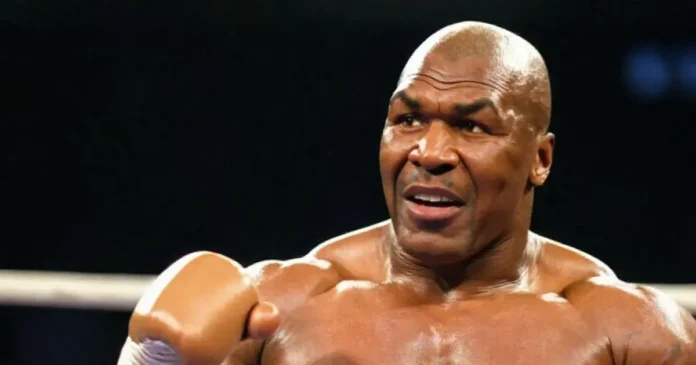“`html
Why Iconic Athletes Like Mike Tyson Find it Hard to Step Away
At the age of 58, “Iron” Mike Tyson’s return to the boxing ring, especially after his notable performance against Jake Paul during Netflix’s inaugural live boxing event, raises intriguing questions about why legendary athletes find it challenging to retire. While the financial incentives for such comebacks are undeniable, numerous studies delve deeper into the psychological and emotional factors that keep these icons tethered to their sport.
One of the foremost reasons is the identity that athletes forge through their careers. For many, the sport becomes an integral part of who they are, shaping not just their public persona but their sense of self. For Tyson, who has been in the limelight since he was a teenager, stepping away from the ring means relinquishing a significant aspect of his identity. Studies suggest that athletes like Tyson often grapple with existential questions and fears of irrelevance once they retire.
Moreover, the thrill of competition and the adrenaline rush that comes with it are powerful motivators. The high stakes, the crowd’s roar, and the sheer challenge of facing an opponent can be addictive. Tyson’s performance, although clearly indicative of a fighter past his prime, showcased his enduring spirit and passion for the sport. Academic research underscores that many athletes often miss the excitement and camaraderie of competition, leading them to return, even in their later years.
Another crucial factor is the social and emotional support system that professional sports provide. Athletes often thrive in a structured environment filled with teammates, coaches, and fans. The adrenaline, the celebrations after a victory, and even the shared camaraderie during tough times create bonds that are hard to replicate outside the sport. For many retired athletes, the absence of this community can lead to loneliness and a sense of displacement, prompting them to seek the familiar comfort of combat sports, as seen with Tyson.
Additionally, the culture surrounding sports plays a pivotal role. Society often values the competitive spirit and the relentless pursuit of greatness. Icons like Tyson are celebrated for their resilience and tenacity, creating a narrative that glorifies continued participation in the sport, regardless of age. This societal pressure can lead athletes to feel that stepping away signifies weakness or lack of commitment, thus reinforcing their tendency to stay in the game longer than they should.
Financial motivations, while significant, are just one piece of a more complex puzzle. Many legendary athletes have amassed fortunes but still return for bouts due to the allure of the spotlight, the thrill of competition, and the need for connection. For Tyson, the prospect of entering the ring once more seems to offer not just monetary reward but also the chance to reignite the flame of his youth and recapture the essence of who he was.
In conclusion, the reasons why iconic athletes like Mike Tyson find it difficult to step away from their sport are multifaceted. From issues of identity to the adrenaline rush of competition, the emotional connections forged in the sporting world, and the societal expectations surrounding athleticism, the path to retirement is fraught with challenges. For legends like Tyson, the ring remains a siren call that, even at 58, proves hard to resist.
At the age of 58, “Iron” Mike Tyson has not completely dismissed the idea of stepping into the ring again, following his impressive, albeit not peak-performance, showing against Jake Paul during Netflix’s inaugural live boxing event. While it’s clear that financial incentives play a significant role, academic research highlights additional motivations that help explain why numerous sports icons continue to pursue competition.
“`
